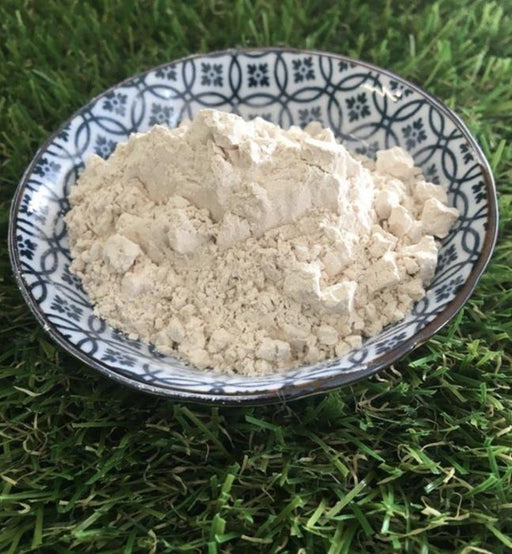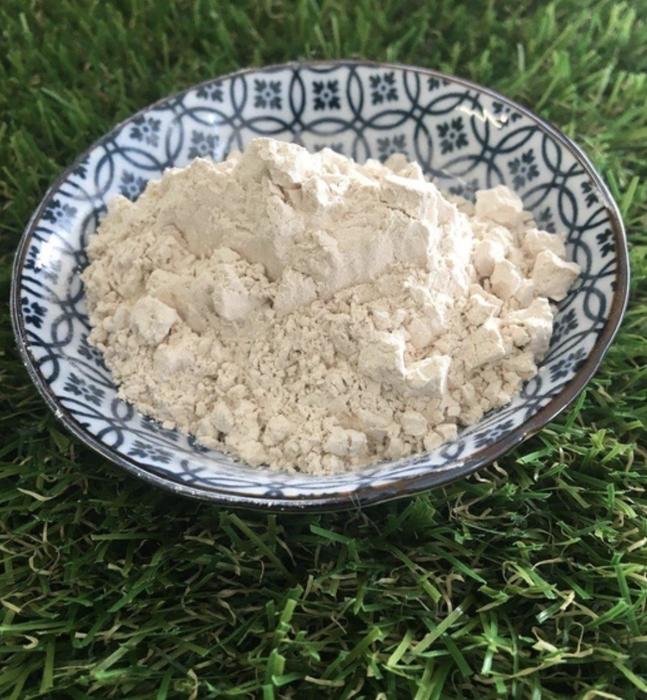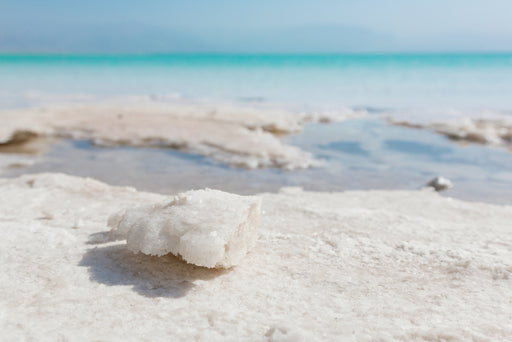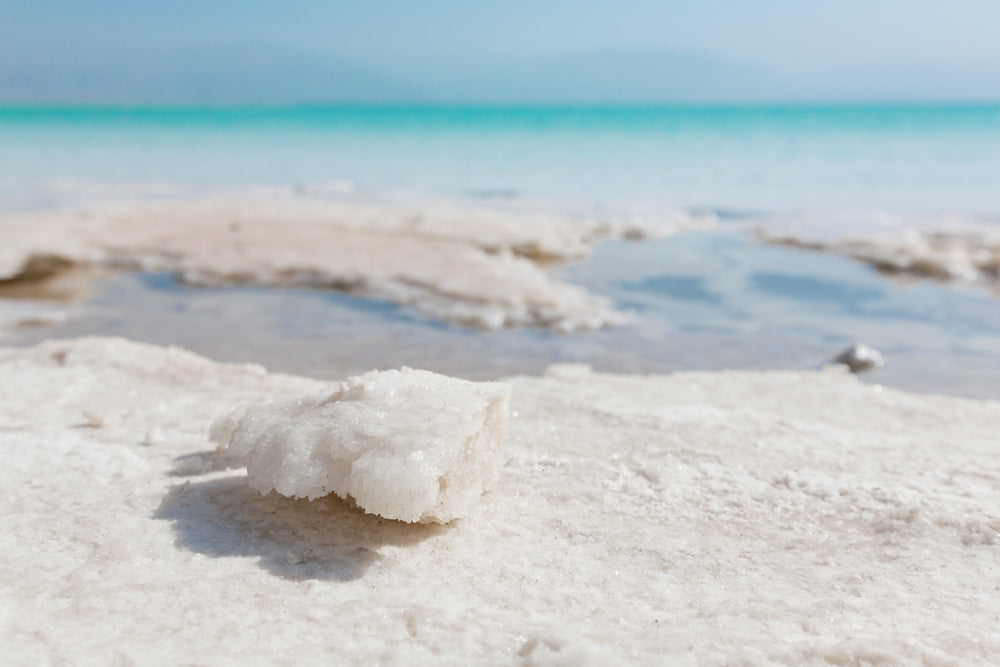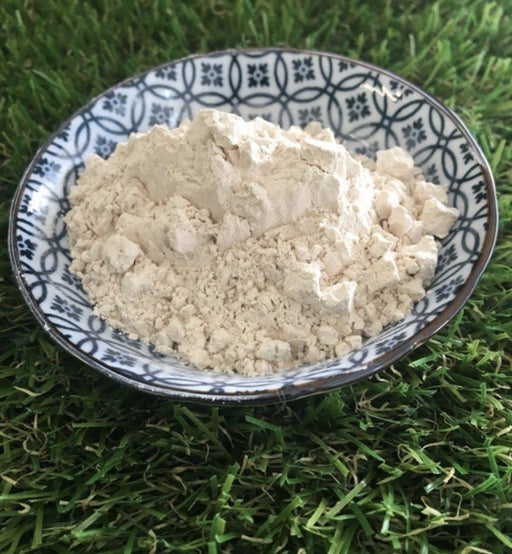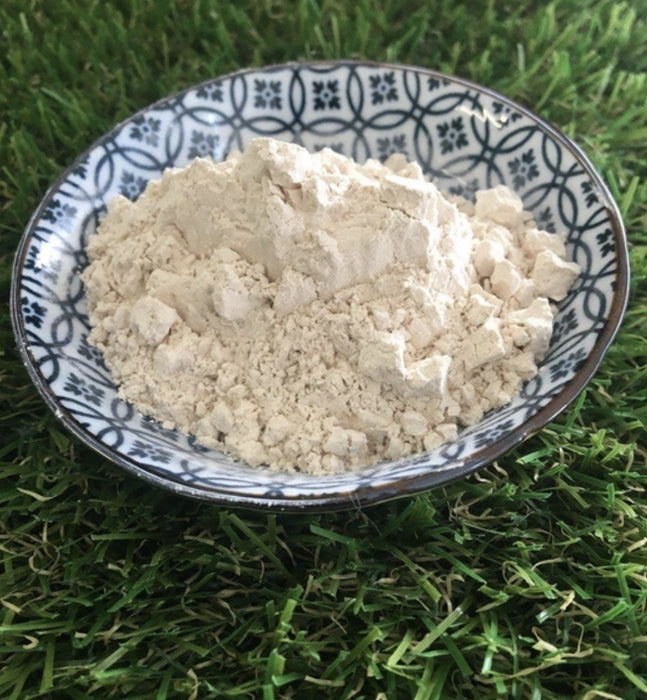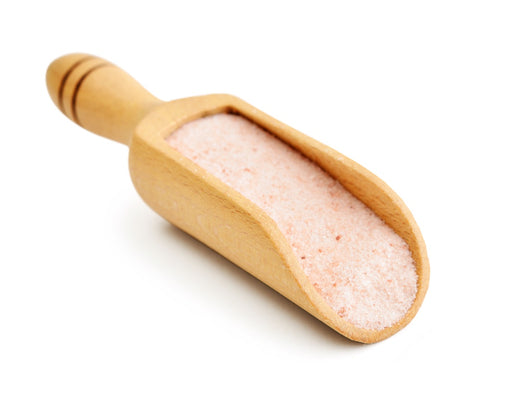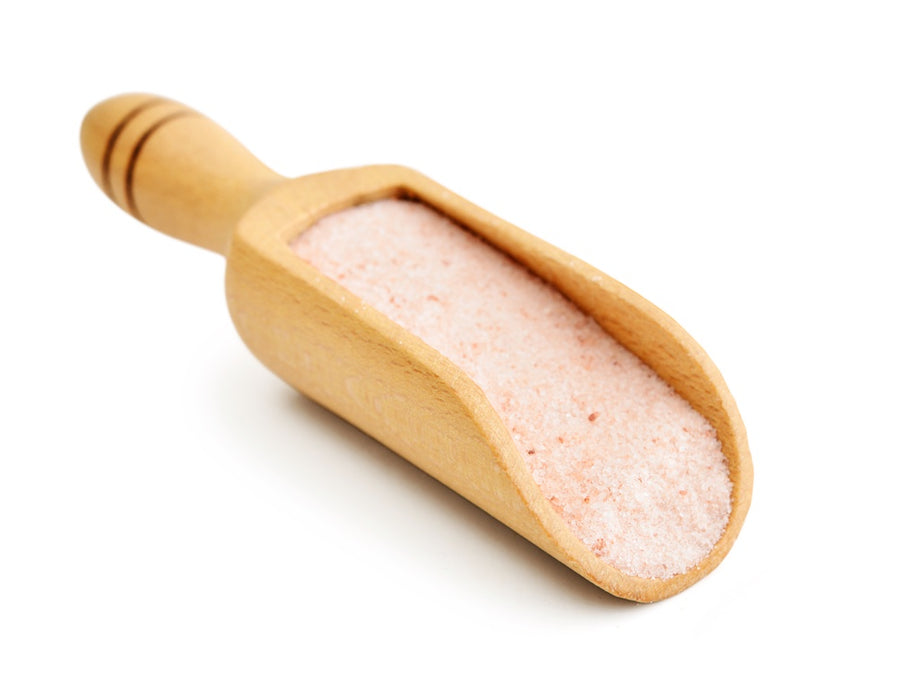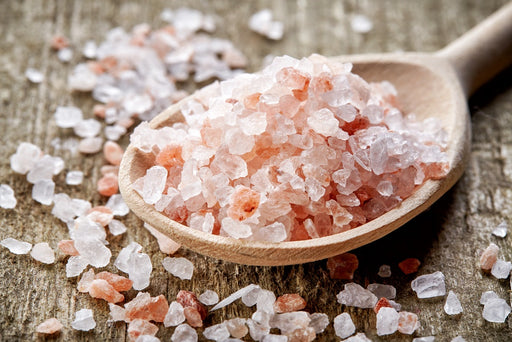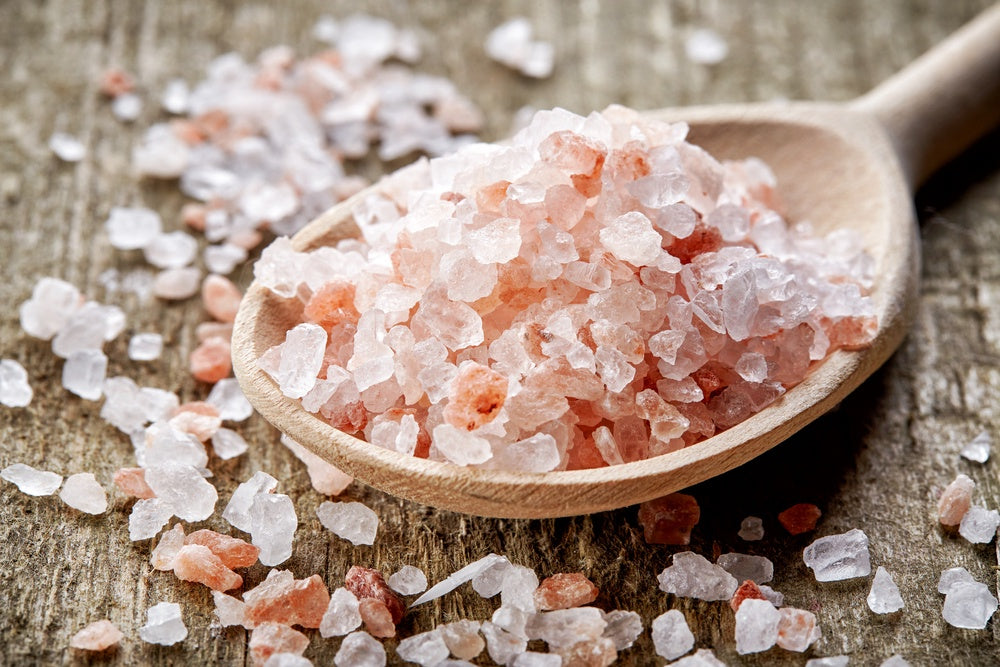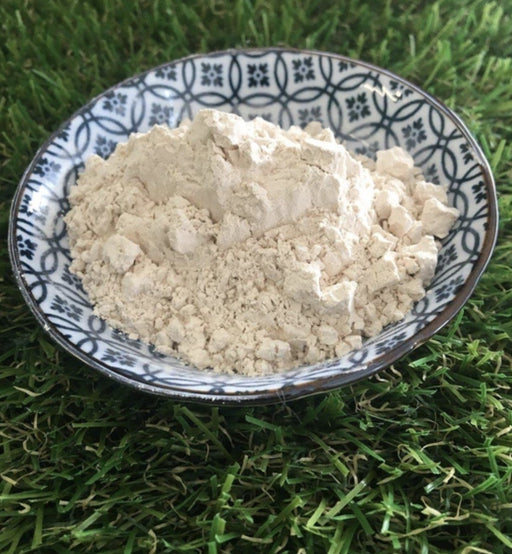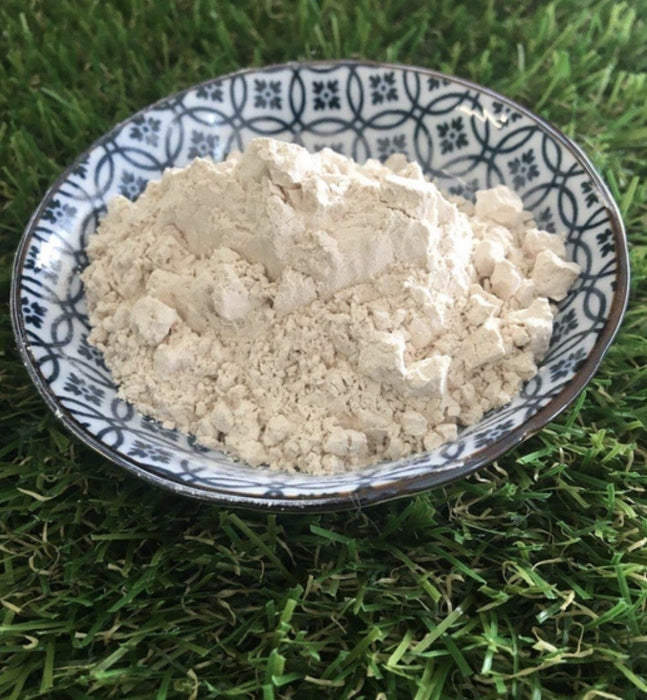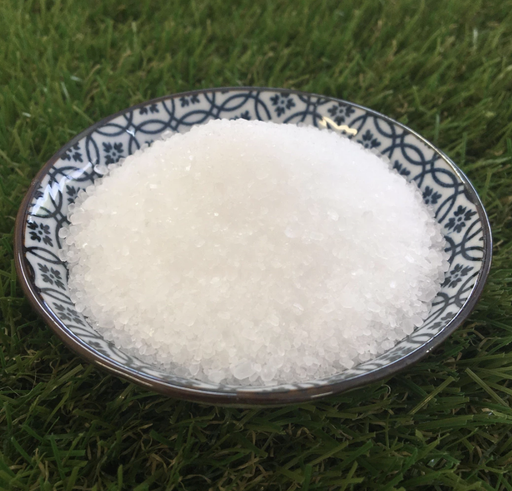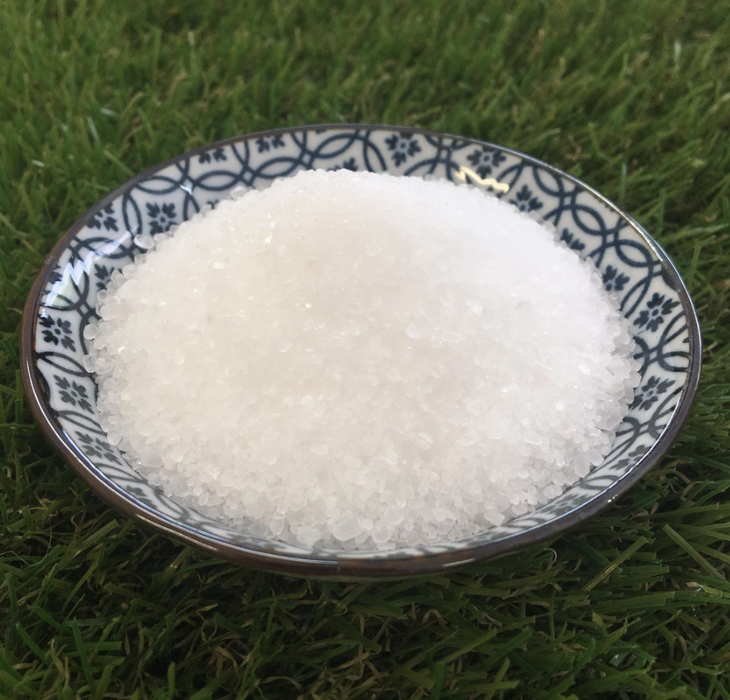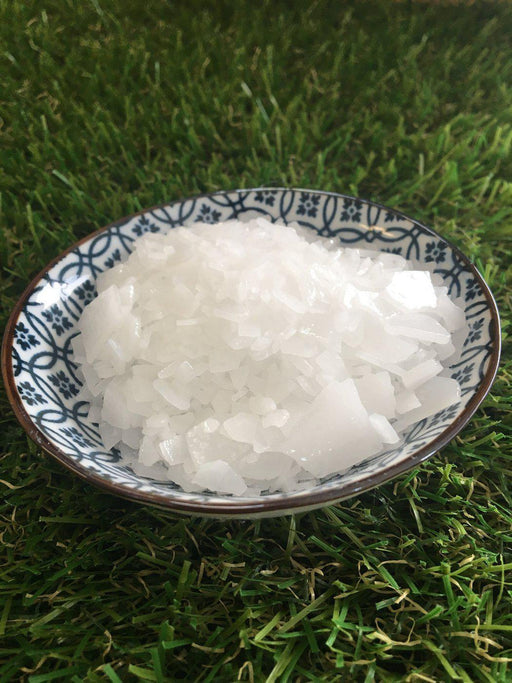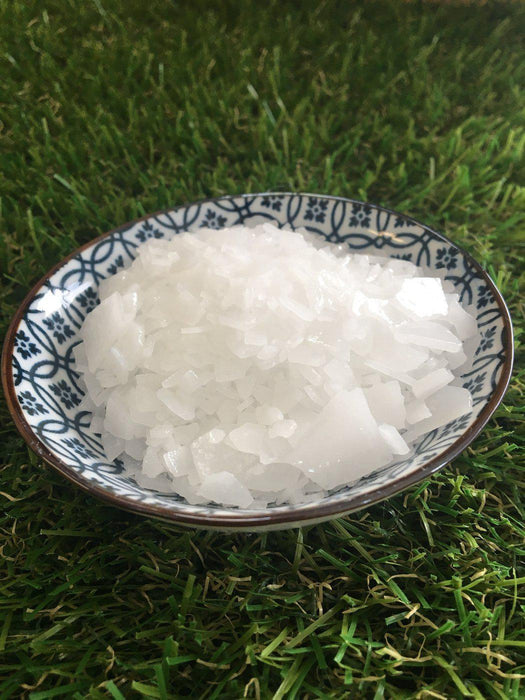or make 4 interest-free payments of
$5.49 AUD
fortnightly with
![]() More info
More info
Organic Sodium Bentonite Clay 1Kg (Australian Certified Food Grade) Harvested in Australia.
AVAILABLE in 250g / 500g / 1Kg sizes.
Bentonite Clay, also known as Montmorillonite clay, is formed from volcanic ash which has been trapped for eons and is a natural clay with a fine, soft texture. There are two types of Bentonite Clay. Ours is Sodium Bentonite, which has been trapped in salty sea beds. Calcium Bentonite comes from deposits of fresh water river beds, and both are suitable for external and internal use despite what many people say. A common misconception is that calcium bentonite is better for consumption, but as long as they are food grade quality, both are forms are great. See more on this at the bottom of the page.
Our Food Grade Bentonite Clay is a Sodium Bentonite, sourced from a natural deposit in Australia, and it is finely milled to 45 microns resulting in a silky smooth powdery clay which has many uses and health benefits.
Compliant to Food Standards Australia and NZ, our Bentonite Clay may be used internally or externally. Harvest and production is a simple process of - harvest, dry, mill, and package with absolutely no chemicals used.
Sodium Bentonite clay is negatively charged and can be used to assist in detoxing. It also has a unique ability to swell up to 18x its size, and then the nasties are attracted to the surface of the clay and taken away when the clay is rinsed off of your skin.
How to Use:
Our natural Bentonite clay can be used externally in a all sorts of ways or even consumed orally. Some of the most common uses include:
Drinking it. To use Bentonite internally combine 1 tsp. of powder in a glass of water or fresh juice in a glass jar and shake well (or use a blender). Drink once daily, if desired. It is recommended to wait 1 hour after food and 2 hours after medication or supplements before consuming clay, as it may affect absorption. Make sure you drink plenty of water when consuming clay, as it can dehydrate you if you don’t keep up your fluids.
Applied topically, Bentonite clay can help draw impurities and excess oil from your pores and assist in rebalancing your complexion and making you skin super soft. It helps your skin to:
· Deep cleanse your pores
· Detox your skin from chemicals and heavy metals. (just think about the pollution in the air and the chemicals in your makeup)
· Fight acne and blemishes.
· Reduces the appearance of acne scarring
· Balances overall complexion
· Absorb excess oil and aids in ongoing sebum production
Making a clay mask for the face or body; this can be as simple as mixing 1 teaspoon of clay with 2 teaspoons of water, smear it on and leave it for 20 minutes. It will set rock hard and draw out all of the “toxins” and “free radicals” or in plain terms, it drags out the crap! Simply wash it all off after 20 minutes, for a baby soft, detoxed angel face.
Why not get a little bit fancy and try making your mask with Apple Cider Vinegar to balance the alkalinity of the Bentonite Clay, and add some aloe vera gel and raw honey for the combined benefits and the Top Shelf face mask.
If you want baby angel skin ALL OVER, then jump in the bath with your new best friend, Bentonite Clay.
In the bath use 2-4 cups of bentonite clay, simply sprinkle it in like magical pixie dust. Soak in the bath for up to 20 minutes, or until the kids or hubby interrupt you. Rinse any residual clay off in the shower when you are done. We call it a mud bath with the kids, and they love getting dirty when they are meant to be getting clean!
To soak your poor old tired, dry and aching feet, just add ½ Cup of Bentonite Clay to a tub and soak your hooves for 20 minutes. Presto! Soft rejuvenated feet.
Bentonite clay should not be stored in a metal container and metal utensils should be avoided.
Clean repurposed airtight glass jars are perfect!
Further reading on the difference between the two most common Bentonite Clays.
Sodium Bentonite vs Calcium Bentonite
Ions are atoms that have gained or lost one or more electron. A common atom has no electrical charge, but ions have a positive or negative charge based on the number of electrons.
So ions are attracted to each other by their opposite charge. An exchange takes place that is purely electrical. It does not discriminate, so it does not matter if the ions are sodium, calcium, magnesium or potassium.
For example Arsenic has a positive charge and is looking for a negative charge to balance its electrons. Because all types of Bentonite have negatively charged ions they will bond with arsenic or any other positively charged particle.
This is how clay can be used as an effective cleansing or detoxing agent if you like. It binds to positively charged heavy metals or toxins & locks them away.
Furthermore, Sodium Bentonite clay contains calcium as an exchangeable ion and calcium Bentonite contains sodium as an exchangeable ion.
To convert Calcium Bentonite to Sodium Bentonite just add a small amount of salt to a cup of clay and it will have more sodium exchangeable ions and therefore sodium Bentonite.
One factor that could make a difference is the conductivity of the substance.
For example, sodium is a better electrical conductor than calcium so there may be an advantage is this regard. In any case all types of Bentonite are considered to be abundant with exchangeable negative ions and that’s positive for us!
